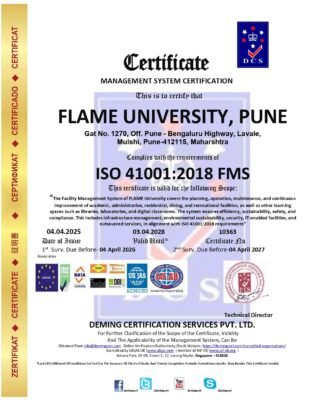ISO 21001 Educational Organization Management Systems
ISO 21001 is an international standard that provides a framework for Educational Organization Management Systems (EOMS). It’s designed to help educational institutions improve the quality of their services and better meet the needs of learners and other stakeholders.
🎓 What ISO 21001 Covers
- Full name: ISO 21001:2025 – Educational organizations — Management systems for educational organizations — Requirements with guidance for use
- Applicability: Schools, universities, training centers, e-learning providers, and corporate learning departments — both public and private.
🌟 Key Benefits
- Aligns educational activities with mission, vision, and policy
- Enhances learner and staff satisfaction
- Supports inclusive and equitable education
- Promotes innovation and continuous improvement
- Builds credibility and trust in educational services
🧩 How It Works
ISO 21001 is based on the structure of ISO 9001 (Quality Management Systems), but tailored specifically for education. It focuses on:
- Learner-centered approaches
- Competency development
- Transparent evaluation and feedback mechanisms
- Lifelong learning and distance education support
🏫 Who Should Use It?
Any organization that delivers education or training — from early childhood education to adult learning — can benefit. It’s especially useful for institutions aiming to demonstrate their commitment to quality and continuous improvement in education.
Requirements for learner admission and certification under ISO 21001
ISO 21001 does not prescribe specific admission or certification criteria for learners like a regulatory body would. Instead, it provides a management system framework that educational organizations can use to ensure their learner admission and certification processes are transparent, fair, and aligned with educational objectives.
📝 Admission Requirements (Under ISO 21001 Framework)
Educational organizations must:
- Define clear admission criteria based on the competencies required for the program.
- Ensure non-discriminatory access to education, promoting inclusivity and equity.
- Communicate admission policies and procedures openly and consistently.
- Align admission processes with the organization’s mission, vision, and learner needs.
🎓 Certification Requirements (Under ISO 21001 Framework)
Organizations must:
- Establish clear learning outcomes and assessment criteria for certification.
- Ensure that certification reflects actual learner achievement and competency development.
- Use valid and reliable evaluation methods to assess learner performance.
- Maintain records of certification and provide learners with appropriate documentation (e.g., diplomas, transcripts).
- Continuously review and improve certification processes to ensure relevance and fairness.
🔍 What ISO 21001 Ensures
Rather than dictating what learners must do, ISO 21001 ensures that:
- The organization’s processes for admission and certification are well-managed.
- Learners are treated fairly and consistently.
- Educational services are continually improved to meet learner and stakeholder needs.
Typical costs and timeline for ISO 21001 certification
Here’s a breakdown of the typical costs and timeline for ISO 21001 certification in India as of 2025:
💰 Typical Costs for ISO 21001 Certification
Costs vary depending on the size and complexity of the educational organization, but here’s a general estimate:
| Organization Size | Estimated Cost Range (INR) |
|---|---|
| Micro (1–10 staff) | ₹15,000 – ₹30,000 |
| Small (11–50 staff) | ₹30,000 – ₹75,000 |
| Medium (51–200 staff) | ₹75,000 – ₹1,50,000 |
| Large (200+ staff) | ₹1,50,000 – ₹3,00,000+ |
Cost factors include:
- Gap analysis and documentation
- Internal training and audits
- Certification body fees
- Surveillance audits (annual follow-ups)
⏳ Typical Timeline for Certification
The process usually takes 3 to 6 months, depending on readiness and resources:
| Phase | Duration |
|---|---|
| Initial gap analysis | 1–2 weeks |
| Documentation & training | 4–8 weeks |
| Internal audit | 1–2 weeks |
| Certification audit | 2–4 weeks |
| Final approval & issuance | 1–2 weeks |
Note: Larger institutions or those starting from scratch may take longer, especially if extensive documentation or process restructuring is needed.















Reviews
There are no reviews yet.